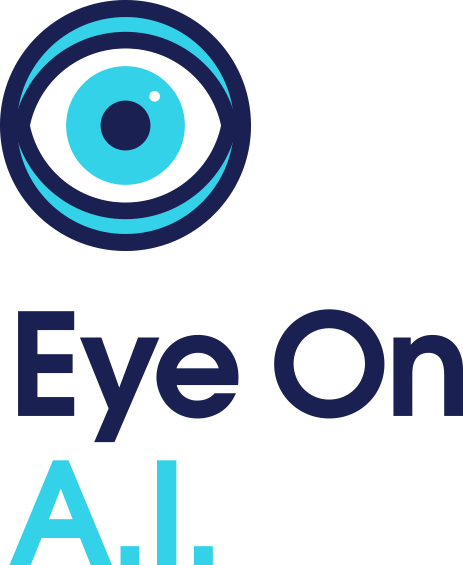Week Ending 2.2.2020
RESEARCH WATCH: 2.2.2020
Over the past week, 594 new papers were published in "Computer Science".
The paper discussed most in the news over the past week was "Information Leaks via Safaris Intelligent Tracking Prevention" by Artur Janc et al (Jan 2020), which was referenced 58 times, including in the article The Fractured Future of Browser Privacy in Wired News. The paper author, Artur Janc (Google security engineer), was quoted saying "What you end up with is a personalized anti-tracking model baked into your browser".
Leading researcher Yoshua Bengio (Université de Montréal) came out with "Using Simulated Data to Generate Images of Climate Change".
Over the past week, 56 new papers were published in "Computer Science - Artificial Intelligence".
The paper discussed most in the news over the past week was by a team at DeepMind: "MEMO: A Deep Network for Flexible Combination of Episodic Memories" by Andrea Banino et al (Jan 2020), which was referenced 4 times, including in the article DeepMind's MEMO AI solves novel reasoning tasks with less compute in Venturebeat.
Leading researcher Yoshua Bengio (Université de Montréal)
Over the past week, 97 new papers were published in "Computer Science - Computer Vision and Pattern Recognition".
The paper discussed most in the news over the past week was "SieveNet: A Unified Framework for Robust Image-Based Virtual Try-On" by Surgan Jandial et al (Jan 2020), which was referenced 5 times, including in the article Adobe’s AI Fits Clothes on Any Body Type in Beebom.
Leading researcher Yoshua Bengio (Université de Montréal)
Over the past week, 18 new papers were published in "Computer Science - Computers and Society".
The paper discussed most in the news over the past week was "Dark Patterns after the GDPR: Scraping Consent Pop-ups and Demonstrating their Influence" by Midas Nouwens et al (Jan 2020), which was referenced 42 times, including in the article GDPR Subverted by Cookie Consent Tools, Study Reveals in CPO Magazine. The paper author, Midas Nouwens, was quoted saying "What is shocking is how non-compliant interface designs are allowed by the companies that provide consent pop-ups. Why do they let their clients count scrolling as consent or bury the decline button somewhere on the third page?".
Over the past week, 18 new papers were published in "Computer Science - Human-Computer Interaction".
The paper discussed most in the news over the past week was "Dark Patterns after the GDPR: Scraping Consent Pop-ups and Demonstrating their Influence" by Midas Nouwens et al (Jan 2020)
This week was active for "Computer Science - Learning", with 211 new papers.
The paper discussed most in the news over the past week was by a team at Google: "Towards a Human-like Open-Domain Chatbot" by Daniel Adiwardana et al (Jan 2020), which was referenced 23 times, including in the article Google’s ‘Meena’ advances the exquisite banality of chatbots in ZDNet. The paper author, David Limp, was quoted saying "the holy grail of voice science."
Leading researcher Chris Dyer (DeepMind) came out with "Learning Robust and Multilingual Speech Representations".
Over the past week, eight new papers were published in "Computer Science - Multiagent Systems".
The paper discussed most in the news over the past week was "Towards Learning Multi-agent Negotiations via Self-Play" by Yichuan Charlie Tang (Jan 2020), which was referenced 3 times, including in the article Apple researchers train AI drivers to merge lanes in a simulated environment in Venturebeat. The paper author, Yichuan Charlie Tang, was quoted saying "We demonstrate [our technique] in a challenging multi-agent simulation of merging traffic, where agents must interact and negotiate with others in order to successfully merge on or off the road".
Over the past week, 17 new papers were published in "Computer Science - Neural and Evolutionary Computing".
The paper discussed most in the news over the past week was by a team at Google: "Towards a Human-like Open-Domain Chatbot" by Daniel Adiwardana et al (Jan 2020)
Over the past week, 24 new papers were published in "Computer Science - Robotics".
The paper discussed most in the news over the past week was by a team at University of Washington: "RoboFly: An insect-sized robot with simplified fabrication that is capable of flight, ground, and water surface locomotion" by Yogesh M Chukewad et al (Jan 2020), which was referenced 7 times, including in the article Researchers create an insect-inspired microrobot in GlobalSpec. The paper author, Chukewad, was quoted saying "Now that we ascertained that RoboFly can perform multi-modal locomotion, our next objective will be to use it as a tool to better understand the behavior of its biological counterparts".

